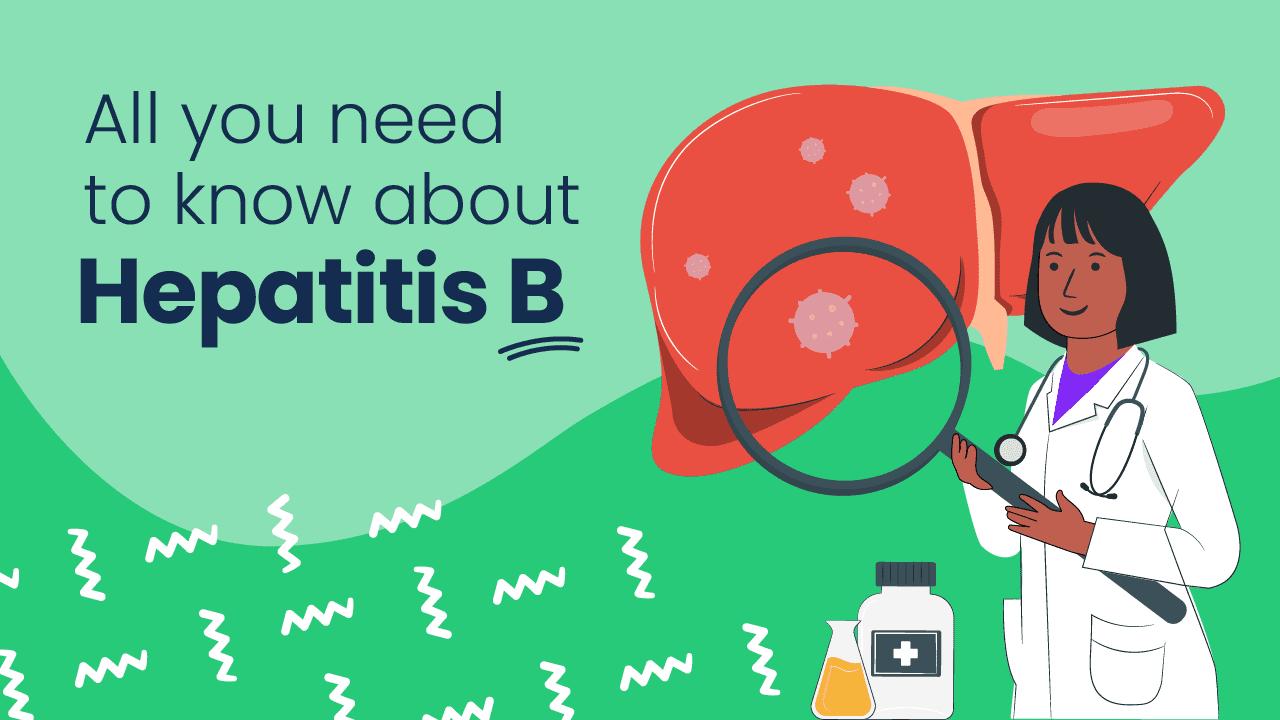Hepatitis B: Symptoms, Causes, Stages & Treatment
Discover more information regarding Hepatitis B, including its signs, origins, phases, and available medical remedies in this article.

Article contribution by Homage Malaysia
Hepatitis B is the most common chronic liver infection worldwide. According to the World Health Organisation’s findings, an estimated 296 million people live with hepatitis B in 2019, with 1.5 million new infections per year, and a mortality rate of approximately 820 000 people. In fact, viral hepatitis is ranked the seventh most common cause of mortality. In Malaysia, the incidence rate of hepatitis B was estimated at 12.65 per 100,000 people in 2015.
What Exactly is Hepatitis B?
Hepatitis B is caused by the hepatitis B virus, abbreviated as HBV. HBV spreads through blood, semen, open sores/wounds or other bodily fluids. However, it cannot be spread to others by sneezing or coughing. Hepatitis B causes liver inflammation that can if it persists, cause lasting liver damage. For many people, hepatitis B is a short-term illness that goes away on its own after some time. For others, however, it can become a chronic condition.
Younger people, especially infants and children below the age of five, who are infected by HBV have a much higher risk of developing chronic hepatitis B. People from certain regions in the world also carry a higher risk of developing chronic hepatitis B, including persons from Sub-Saharan Africa, the Pacific islands, the Middle East, as well as parts of Northeast and Southeast Asia.
Acute and Chronic Hepatitis B
Acute hepatitis B is a short-term illness that happens in the first 6 months after being infected by HBV. It is estimated that 90% of persons infected with hepatitis B will be able to overcome the infection within 6 months. In such cases, these persons also develop permanent immunity to hepatitis B. Generally, most healthy adults and children above 5 years of age are more likely to recover from acute hepatitis B.
If it persists for more than 6 months, then the acute condition has become chronic. Chronic hepatitis B lasts longer, maybe even throughout your lifetime, as the virus multiplies in the liver. Chronic hepatitis B can cause severe inflammation and scarring of the liver, significantly impairing liver functions. There is also a risk of developing liver cancer or other health complications.
To make things more complicated, symptoms may not develop immediately up until you or your loved one develops liver-related complications. There are also rare instances where hepatitis B recurs in people who have had it before, which also causes further liver-related complications.
Causes of Hepatitis B
HBV spreads from exposure to blood, semen or other body fluids. This means direct exposure, so factors like sneezing and coughing do not spread the virus to other people. Some causes include:
Unprotected sexual contact with someone who is infected
Sharing non-sterile needles/syringes with someone who is infected
Using items that were used by/on an infected person, but not properly sterilised (i.e., getting a tattoo or using someone’s razor to shave)
Direct contact/exposure to infected fluids (blood, semen, etc.) and/or open sores/wounds
Being born to a mother with hepatitis B
You might notice that some of these causes are very much similar to the causes of HIV, as they both spread by similar means.
Risk Factors of Hepatitis B
The risk of developing hepatitis B will increase if you or your loved one:
Have unprotected sex
Share or use unsterilized items
Live or care for someone with chronic hepatitis B
Receive treatment from someone who does not use properly sterilised equipment
Provide treatment to someone, where there is a high likelihood of direct exposure to (infected) body fluids
Work or live in institutional facilities, such as prisons or hospitals
Travel to areas with a high risk of HBV infection
Note that having any of these risk factors does not mean that you will develop hepatitis B.
Symptoms of Hepatitis B
Hepatitis B usually does not cause any symptoms. If they do, they can range from mild to serious symptoms. However, in chronic cases, symptoms may not develop until many years later.
In the case of acute hepatitis B, symptoms may include
Low-grade fever
Fatigue
Loss of appetite
Nausea
Vomiting
Abdominal or joint pain
For chronic hepatitis B, symptoms that may develop include the above-mentioned symptoms, as well as:
Jaundice (yellow colouration of the skin or eyes)
Severe cases of nausea and/or vomiting
Bloated/swollen stomach
Liver complications, such as liver failure or liver cancer



